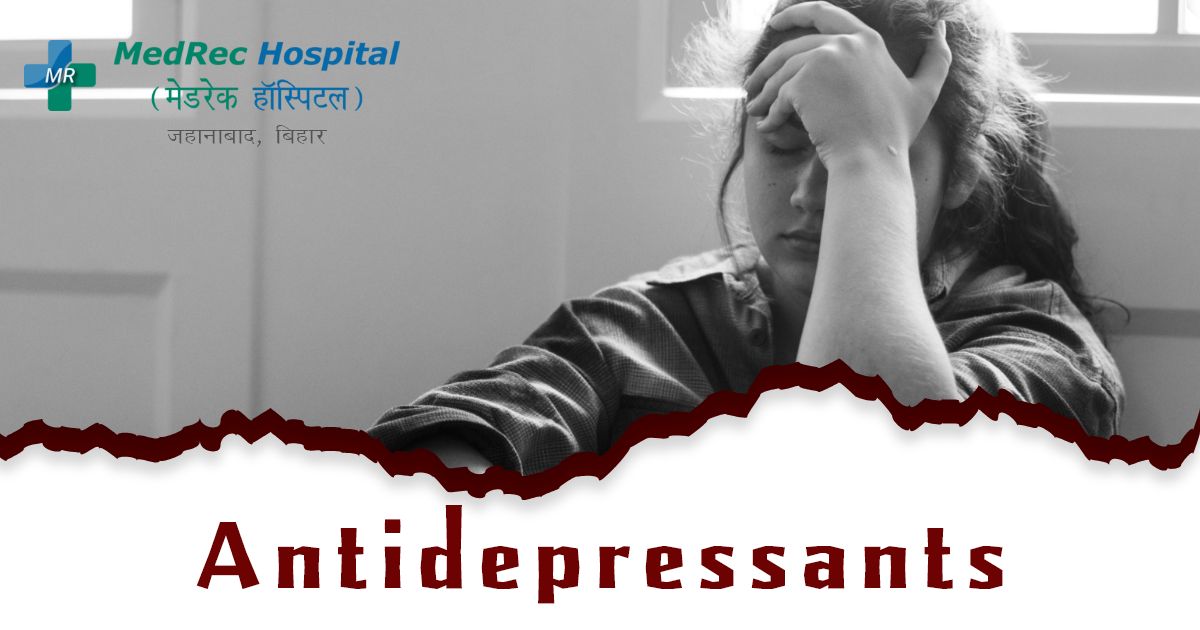
Antidepressants : Important Things You Must Consider
742
Clinical depression is treated using antidepressants, a class of medication.
They can also be used, among other things, in the following situations:
- OCD
- Anxiety
- Trauma-related stress disorder (PTSD)
Patients with chronic (persistent) pain may also be taken antidepressants. Antidepressants may be beneficial for people with moderate to severe depression, according to research. Unless other treatments like talking therapy have failed, they are typically not advised for mild depression.
Methods
Antidepressants' specific mechanism of action is unknown.
They are believed to function by raising the concentrations of neurotransmitter-related substances in the brain. Serotonin and noradrenaline are two neurotransmitters that have been connected to mood and emotion.
Some antidepressants may be able to lessen chronic pain because neurotransmitters may also have an effect on the neurons' capacity to transmit pain signals.
Antidepressants help alleviate the signs of depression, but they do not always deal with its root causes. To treat more severe depression or other mental health issues, they are typically taken in conjunction with treatment.
Side effects
A variety of adverse effects are possible with various antidepressants. Always read the medication's information leaflet to learn about any potential adverse effects.
Antidepressants typically have mild side effects, which are the most prevalent. As the body adjusts to the medication, side effects should subside within a few days or weeks of starting treatment.
Important things to consider
Typically, antidepressants are taken as tablets. When they are administered, you will start taking them at the lowest dosage thought to be necessary to reduce your symptoms. Antidepressants frequently need to be taken continuously for 1-2 weeks before any benefits are felt. If you experience some small side effects at first, it is crucial to continue taking them because they typically subside fast.
Speak with your doctor or a mental health professional if you have been taking an antidepressant for four weeks but have not noticed any benefits. They might suggest increasing your dosage or trying a different drug.
After you begin to feel better, a course of treatment typically lasts for at least six months. It might be suggested for certain patients with recurrent depression to take them for a short period.
Types of Antidepressants
A variety of antidepressants are available.
Inhibitors of selective serotonin reuptake (SSRIs)
The most often prescribed class of antidepressants are SSRIs. Since they have less negative effects than other antidepressants, they are typically recommended. The severity of an overdose is also less likely.
The most used SSRI is undoubtedly fluoxetine (sold under the brand name Prozac). Citalopram (Cipramil), escitalopram (Cipralex), paroxetine (Seroxat), and sertraline are further SSRIs (Lustral).
Inhibitors of the serotonin-norepinephrine reuptake (SNRIs)
SSRIs and SNRIs are comparable. They were created to be an antidepressant that was more potent than SSRIs. Uncertainty surrounds the evidence that SNRIs are more successful in treating depression. It appears that some individuals respond better to SSRIs than others do to SNRIs.
Duloxetine (Cymbalta and Yentreve) and venlafaxine are two examples of SNRIs.
Specific serotonergic antidepressants with noradrenaline (NASSAs)
Some persons who cannot take SSRIs may benefit from NASSAs. While NASSAs are supposed to have fewer side effects, they share the same negative effects as SSRIs. But initially, they could also make you feel more sleepy.
Mirtazapine is the primary NASSA that is recommended in the UK (Zispin).
Tricyclic mood stabilisers (TCAs)
Older antidepressants include TCAs. They are no longer typically advised as the initial depression treatment since an overdose can make them more harmful. In comparison to SSRIs and SNRIs, they also have more unpleasant side effects.
When other treatments for severe depression do not work, exceptions are occasionally given. TCAs could also be suggested for various mental health conditions.
Serotonin reuptake inhibitors and antagonists (SARIs)
SARIs are not typically the first antidepressant administered, although they may be if previous antidepressants have failed or have had undesirable side effects.
Trazodone is the most common SARI prescription in the UK (Molipaxin).
Leaving Antidepressants
Before you stop using antidepressants, consult your doctor. It is crucial that you do not abruptly stop using antidepressants.
Your doctor may likely advise gradually lowering your dose over a period of weeks, or longer if you have been on antidepressants for a long time, whenever you are ready to stop taking them.
This is done to lessen the chance that you will have withdrawal symptoms when stopping the medication.
For further information please access the following resources:
Emergency : +91 89686 77907
Front Desk : +91 98018 79584
Page last reviewed: Mar 6, 2023
Next review due: Mar 6, 2025







.jpg)
.jpg)
.jpg)
.jpg)
.jpg)
.jpg)